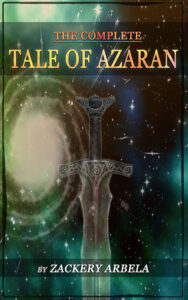 Pawn of Prophecy by David Eddings
Pawn of Prophecy by David Eddings
My rating: 5 of 5 stars
Like any decent drug, the fantasy genre has its gateway substances, and for many of us the first taste, as it were, came from David Eddings Belgariad. There is probably no more perfect example of a classic hero’s journey story distilled down to it’s most basic elements than this series of five books, almost to the point that the late Mr. Eddings seemed to be followed Joseph Campbell’s blueprints for how to write a story,. Ibn other words, it’s a classic in every sense of the word, both good and bad.
The story is basic meat and potatoes – a young naive farmboy is whisked from his bucolic life into a whirlwind of adventure that see’s him grow into his full power and face down against a Type One Evil God with designs on world domination. All the elements are there – the wizard/guide who leads the hero on his quest, the band of boon companions, the Princess…in the hands of most authors this would come across as the most abominable form of hackwork, but Eddings makes it work with snappy dialogue and rich characters who are anything but cardboard.
Why does this series matter? Because anyone who got into the fantasy genre in the late 80’s or early 90’s was weaned on David Eddings. It was a formative work, right along side late night D&D sessions. It was a classic story that could have been mere hackwork like so many others were but wasn’t, a story with the basic elements done right and an education in how to use them. Most of all, it was easy to read, almost YA in a sense, perfect for young readers looking for a world to immerse themselves in but not yet ready to tackle Tolkien or out off by Robert E. Howard’s grittiness, written in a contemporary style, not the Ye Olde England fashion that too many writers affect even to this day. More than that, the series was long, five book in all, followed by a sequel series of equal length, so there was a lot to sink your teeth into.
Eddings wasn’t not without his faults. In particular was his habit of reusing the same plot over and over – magic jewel is stolen, heroes pursue, shenanigans ensue. It worked in the Belgariad, it was reused in the Mallorean, and then in his next series the Elenium and Tamuli…and so on. His standalone novels everted this somewhat, but there was a sense near the end that he was spinning his wheels, though it was a magnificent rut to be in. Regardless, many writers working in the fantasy genre today owe him a debt, and he is missed.
